Updated June 2024.
At Seton Hill, students must read a book on the craft or business of writing each semester. They decide upon the book in consultation with their mentor, and over the years I’ve gathered a list of titles on various topics that have been helpful to my students. I’ve read most of them–the others are ones that multiple students have read and found instructive.
Story Structure, Plotting, & Synopsis
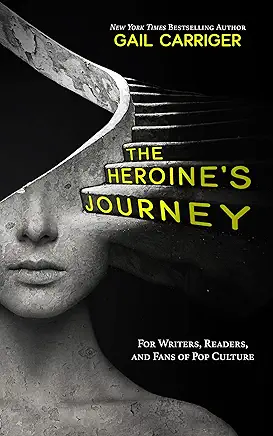 The Heroine’s Journey: For Writers, Readers, and Fans of Pop Culture by Gail Carriger
The Heroine’s Journey: For Writers, Readers, and Fans of Pop Culture by Gail Carriger
One of my favorite books in the past few years. Carriger explores the idea that the traditional hero’s journey story structure is overused, and there are other types of stories that can be told and are often popular. I’ve realized that many works I love and even stories I’ve written are actually heroine’s journeys. The two types of stories are structured differently, with differing major plot points, and the characters have different goals and methods of reaching them. Note that the sex / gender of the protagonist matters not; a male protagonist can be a heroine in the terms Carriger uses.
Multiple students have had realizations about the plots of their novels and the characters that populate them after reading this book. I’ve often wondered if students who struggle with plotting are having that issue because they are attempting to force a heroine’s journey into a hero’s journey–much like the round peg and square hole problem.
 The Story Grid: What Good Editors Know by Shawn Coyne
The Story Grid: What Good Editors Know by Shawn Coyne
Extremely valuable look at the elements of successful stories. Maybe not the most well-edited book on writing—and the images in the electronic version are small enough to be barely worthwhile (at least when I purchased it years ago)–but it’s still an excellent resource. There is a bit of a focus on thrillers, as well.
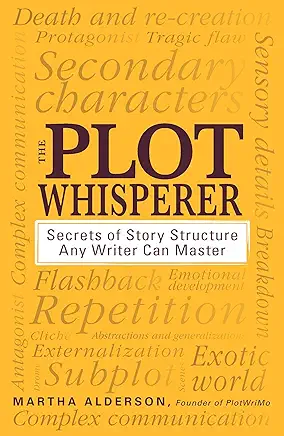 The Plot Whisperer: Secrets of Story Structure Any Writer Can Master by Martha Alderson
The Plot Whisperer: Secrets of Story Structure Any Writer Can Master by Martha Alderson
This one is slightly touchy-feely and a little mystical, and that grates on my nerves a bit . . . but it has a lot of good stuff.
There are also two companion titles.
 Story Engineering by Larry Brooks
Story Engineering by Larry Brooks
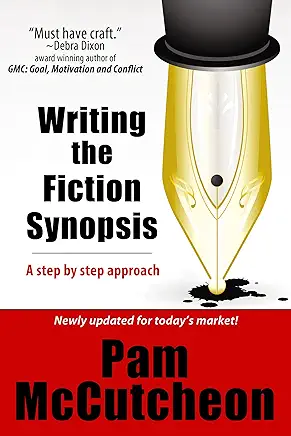 Writing the Fiction Synopsis: A Step-by-Step Approach by Pam McCutcheon
Writing the Fiction Synopsis: A Step-by-Step Approach by Pam McCutcheon
Revision
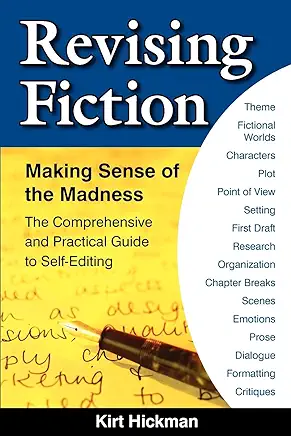 Revising Fiction: Making Sense of the Madness by Kirt Hickman
Revising Fiction: Making Sense of the Madness by Kirt Hickman
I often suggest that my students who are about to wrap up their first drafts read this title. It can be useful even if you are still working on your first draft as it’s good to be thinking about the issues, and the book does deal with first-draft concerns to help you create less of a mess to clean up.
Dialogue
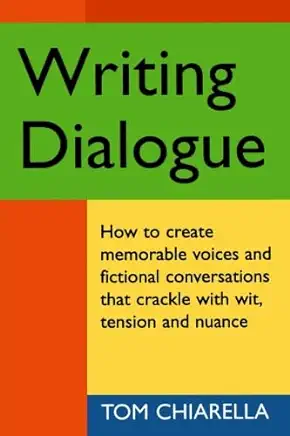 Writing Dialogue by Tom Chiarella
Writing Dialogue by Tom Chiarella
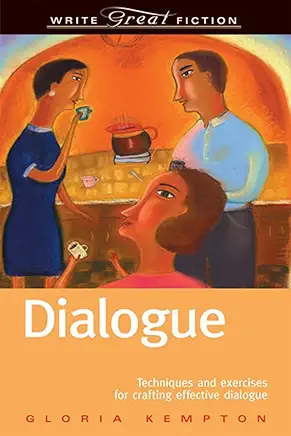 Dialogue: Techniques and Exercises for Crafting Effective Dialogue by Gloria Kempton
Dialogue: Techniques and Exercises for Crafting Effective Dialogue by Gloria Kempton
Point of View
 Characters & Viewpoint (Elements of Fiction Writing) by Orson Scott Card
Characters & Viewpoint (Elements of Fiction Writing) by Orson Scott Card
Characters & Characterization
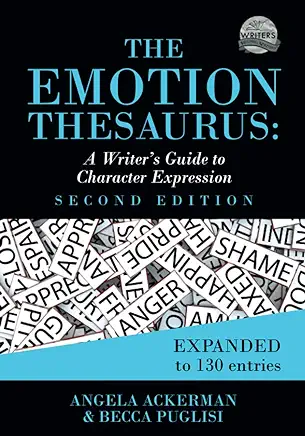 The Emotion Thesaurus: A Writer’s Guide to Character Expression by Angela Ackerman and Becca Puglisi
The Emotion Thesaurus: A Writer’s Guide to Character Expression by Angela Ackerman and Becca Puglisi
 The Emotion Amplifier Thesaurus: A Writer’s Guide to Character Stress and Volatility by Angela Ackerman and Becca Puglisi
The Emotion Amplifier Thesaurus: A Writer’s Guide to Character Stress and Volatility by Angela Ackerman and Becca Puglisi
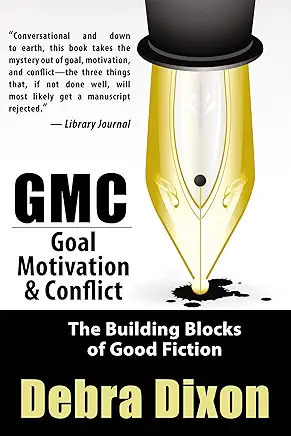 GMC: Goal, Motivation, and Conflict by Debra Dixon
GMC: Goal, Motivation, and Conflict by Debra Dixon
Editing
 Self-Editing for Fiction Writers, Second Edition: How to Edit Yourself Into Print by Renni Browne and Dave King
Self-Editing for Fiction Writers, Second Edition: How to Edit Yourself Into Print by Renni Browne and Dave King
 Writer’s Digest Grammar Desk Reference: The Definitive Source for Clear and Concise Writing by Gary Lutz and Stevenson Diane
Writer’s Digest Grammar Desk Reference: The Definitive Source for Clear and Concise Writing by Gary Lutz and Stevenson Diane
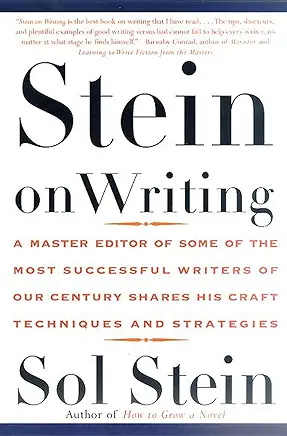 Stein On Writing: A Master Editor of Some of the Most Successful Writers of Our Century Shares His Craft Techniques and Strategies by Sol Stein
Stein On Writing: A Master Editor of Some of the Most Successful Writers of Our Century Shares His Craft Techniques and Strategies by Sol Stein
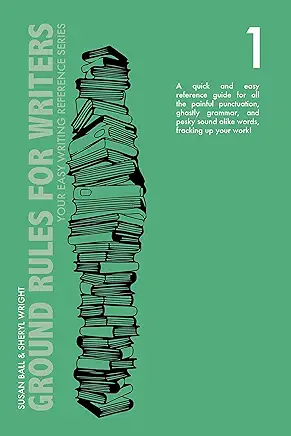 Ground Rules for Writers: A Quick and Easy Reference Guide for all the Painful Punctuation, Ghastly Grammar, and Pesky Sound Alike Words, Fracking Up Your Work by Susan Ball & Sheryl Wright
Ground Rules for Writers: A Quick and Easy Reference Guide for all the Painful Punctuation, Ghastly Grammar, and Pesky Sound Alike Words, Fracking Up Your Work by Susan Ball & Sheryl Wright
 Line by Line: How to Edit Your Own Writing by Claire Kehrwald Cook
Line by Line: How to Edit Your Own Writing by Claire Kehrwald Cook
Theory of Fiction Writing
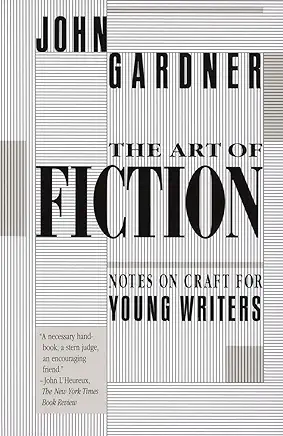 The Art of Fiction: Notes on Craft for Young Writers by John Gardner
The Art of Fiction: Notes on Craft for Young Writers by John Gardner
A classic on writing fiction in general. It’s maybe a little literary and philosophical, but it’s a good book.
Writing Fantasy
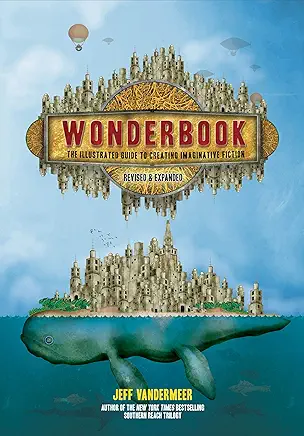 Wonderbook (Revised and Expanded): The Illustrated Guide to Creating Imaginative Fiction by Jeff VanderMeer
Wonderbook (Revised and Expanded): The Illustrated Guide to Creating Imaginative Fiction by Jeff VanderMeer
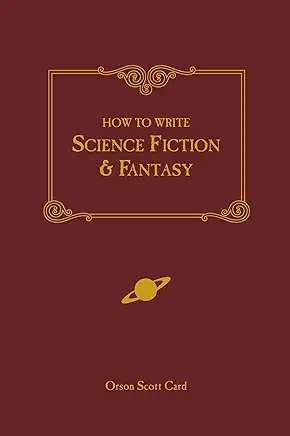 How to Write Science Fiction & Fantasy by Orson Scott Card
How to Write Science Fiction & Fantasy by Orson Scott Card
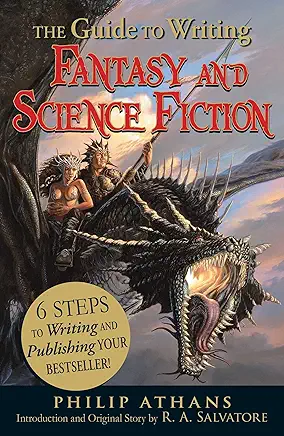 The Guide to Writing Fantasy and Science Fiction: 6 Steps to Writing and Publishing Your Bestseller! by Philip Athans
The Guide to Writing Fantasy and Science Fiction: 6 Steps to Writing and Publishing Your Bestseller! by Philip Athans
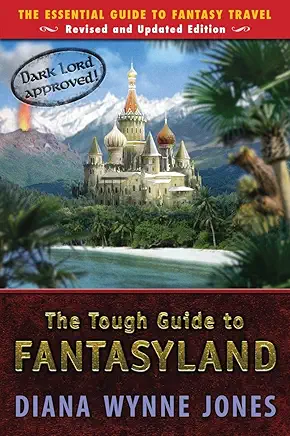 The Tough Guide to Fantasyland: The Essential Guide to Fantasy Travel by Dianna Wynne Jones
The Tough Guide to Fantasyland: The Essential Guide to Fantasy Travel by Dianna Wynne Jones
It’s actually a pretty incisive look at the fantasy genre. It might be a low-key, but it’s still useful.
World Building
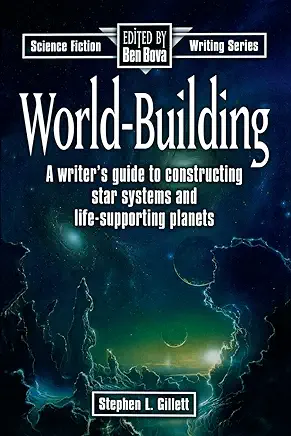 World-Building by Stephen L. Gillett
World-Building by Stephen L. Gillett
Especially useful for SF authors.
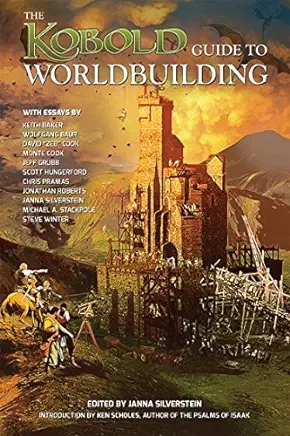 Kobold Guide to Worldbuilding edited by Janna Silverstein
Kobold Guide to Worldbuilding edited by Janna Silverstein
While this book is geared to game designers and people creating campaign worlds for role-playing games, it’s still incredibly useful for fiction writers.
 Storyworld First: Creating a Unique Fantasy World for Your Novel by Jill Williamson
Storyworld First: Creating a Unique Fantasy World for Your Novel by Jill Williamson
This isn’t one that I’ve read, but students of mine have read it and enjoyed it.
Teaching Writing
 Teaching Creative Writing: The Essential Guide by Stephanie Vanderslice
Teaching Creative Writing: The Essential Guide by Stephanie Vanderslice
I’m replacing an older text with this one in my “Teaching Popular Fiction” class. The most up-to-date text on the subject. I’m excited to see what students think of it next term.
